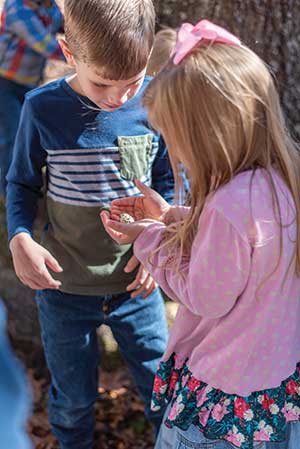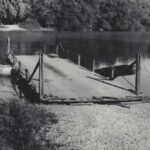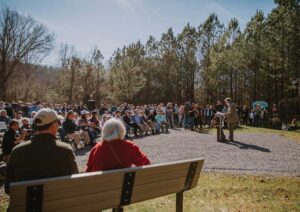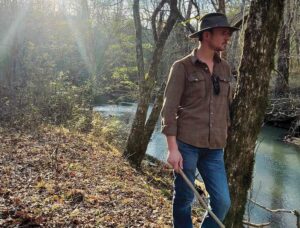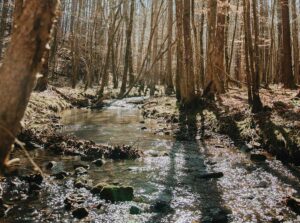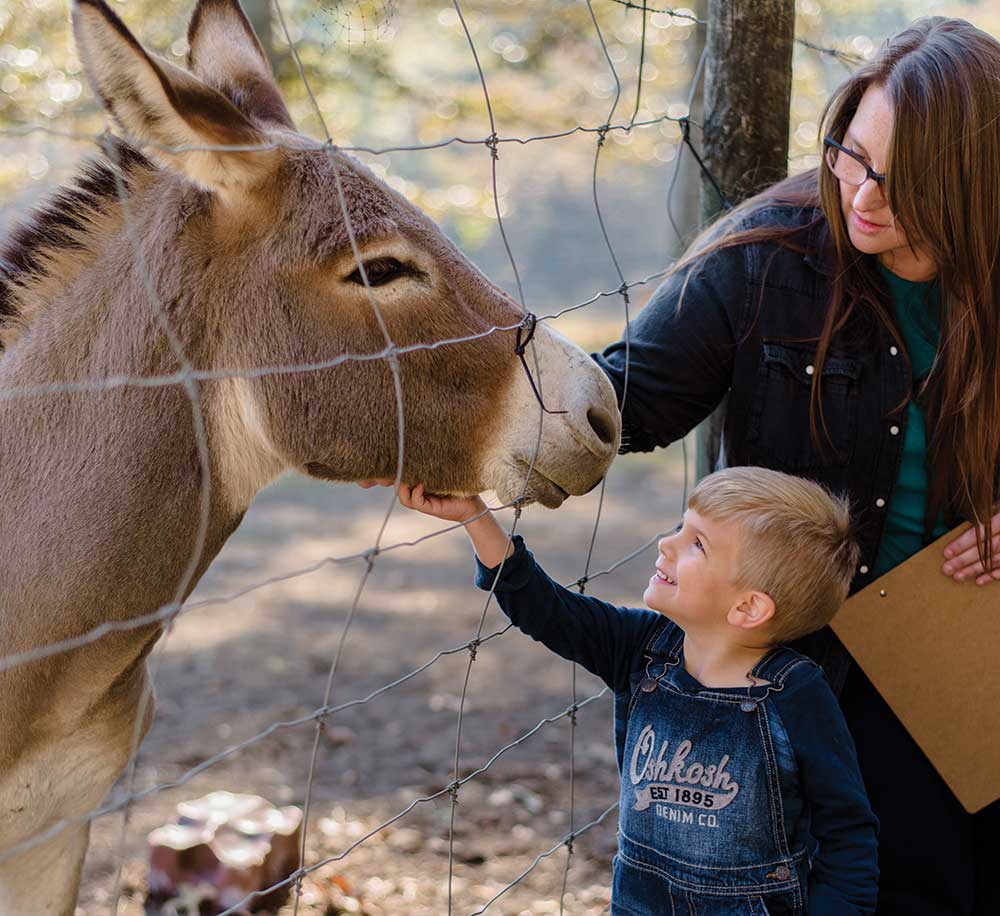
Immersive outdoor program at Pell City’s Hidden Lake Farms
Story by Roxann Edsall
Photos by Kelsey Bain
The day is cool and crisp. One by one, the cars arrive, children emerge, laughing and greeting each other. This is a group of homeschoolers, and they’ve come to the farm for a field trip.
But, this isn’t a trip to just any farm. This farm is the site of a new nature immersion school, and today, they’ve come to learn from nature at Pell City’s Hidden Lake Farms.
In their half-day visit, they’ve met Ham Solo and Princess Luau, a pair of eight-month-old Kunekune pigs. They’ve learned that while they are yet quite small, they will eventually tip the scales at around 200 pounds each. The students have learned that because of their shorter upturned snouts, this particular breed is not able to root as much as most pigs.
Meeting and learning about the pigs was the best part of the day for five-year-old Vivienne, daughter of Deanna and Jonathan Stanton. “I loved the pigs,” she beamed. “They are cute!” 11-year-old Miller agreed. The son of Frances Gauntt, he was fascinated by the pigs, but also enjoyed learning about the farm’s covey of quail.
“That was pretty cool about the quails,” says Miller.
As farm owner and nature educator, Bethany Milstead, described typical quail behaviors, daughter Allie entered the enclosure to collect eggs. She emerged with a handful of tiny eggs. The miniscule hatchlings, Milstead explained, will only weigh as much as a quarter.
A homeschool mom herself, Milstead knows the value of hands-on experiences in keeping the attention of a mixed-age group of students. She hands out quarters for the children to experience a weight similar to the quail hatchlings. Even the parents are hanging on every word. “I never thought about the babies being so tiny,” comments one adult.
Another child’s voice is heard asking to hold the eggs. The tiny eggs are handed out for the children to hold and observe. “Can you eat them?” asks one student. “Yes, you can,” answers Milstead, “but you have to eat a lot of them because they’re so small.”
The students also learn about beta-casein proteins that relate to the farm’s cows and the milk they produce. They work on a gene distribution and expression exercise called Punnett squares to figure out what types of cows would need to be bred to produce particular proteins in milk.
“Look deep into nature and then you will understand everything better.”
~Albert Einstein
Milstead is a firm believer in the strength of learning through experiences in nature. She believes in its value strongly enough that she is opening her nature immersion school in January. The school will be patterned after so-called “forest schools,” which originated in Scandinavia and gained popularity mostly in Germany and the U.K.. Fueled by the COVID-19 pandemic, forest schools in the U.S. have seen a moderate gain in popularity.
Hidden Lake Farm Nature Immersion School will have space for up to three classes of five- to 10-year-olds. The program runs September through June, with a break in July and August. Classes are three days a week from 9 a.m. to 1 p.m. and will be held outside each day beginning and ending at the 54-feet-by-45-feet pavilion.
A recreational vehicle is parked there for kitchen and toilet facilities. Administrators will monitor the weather and shuttle students to Milstead’s nearby home if storms are imminent.
Students will have opportunities to interact with and learn from the activities and animals on the farm. In addition to the pigs and quail, Hidden Lake Farms has horses, donkeys, dairy cows, chickens and turkeys – even a tortoise.
Milstead plans to incorporate the animals and land in her cross-curricular approach to education. Instead of concentrating on math or English at a particular time, she will integrate activities that support learning in multiple disciplines.
“There’s so much research on how important it is to be outside, yet children spend most of their time indoors,” explains Milstead. “There are so many benefits to being outside, including the development of large muscles, heightened immunity and learning opportunities that take advantage of natural curiosity. A nature immersion curriculum empowers children and fosters imagination and confidence.”
Research from Child Mind Institute, a nonprofit which studies childrens’ mental health and education, shows that being outside also supports creative thinking, encourages responsibility, reduces stress and promotes learning by fostering children’s natural sense of wonder.
Fostering that same sense of wonder that enthralled both Vivienne and Miller on that homeschool field trip will be a foundational tenet for teachers and administrators of this new school at Hidden Lake Farms. “We will be right here with the children making note of where their interests are,” adds Milstead. “We will then focus our studies there. We will all carry journals so we can document interests that emerge, and they can journal about what they’ve learned.”
The students will have plenty to journal about as they explore and learn about the animals and plants on the 60-plus acres of land that includes the school and Milstead’s home and farm.
A native of Talladega, she returned to the area to settle down with her husband, Rusty, and her three daughters and one son. From the time they purchased the farm, Milstead has had a vision of one day sharing it with others to help build their love of nature and learning. Ultimately, she hopes, that love of nature will extend to both students and parents. l
Editor’s Note: If you are interested in learning more about getting involved with Hidden Lake Farms Nature Immersion School or in field trips to Hidden Lake Farms, contact Bethany Milstead at hiddenlakefarmpellcity@yahoo.com.














